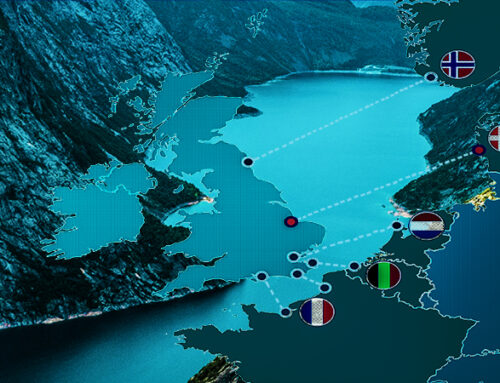Back in June I described the increasing costs National Grid is incurring to protect the UK’s black start capabilities. Over the summer, Ofgem issued its decision on cost recovery, and ruled that while National Grid could recover the costs of the Fiddler’s Ferry contract, only part of the Drax costs would be recoverable.
National Grid had argued that announcements by SSE and Drax to close or mothball some of their units were unforeseeable and that these plans necessitated higher levels of compensation to incentivise the owners to remain open and able to provide the black start services. They wanted these announcements to be considered “Income Adjusting Events” allowing the full costs of the contracts to be recovered.
Ofgem’s decision
As I noted in my post, the falling profitability of coal plants could not really be considered unforeseeable, but in the case of Fiddler’s Ferry, one unit had a Supplemental Balancing Reserve contract for winter 2016/17 and the other three units had capacity market contracts for 2018/19 which would attract penalties of £33 million if they were not honoured. The plant also had a black start contract running until 2020 which also could not be honoured if part of the plant closed.
While it could be argued that an analysis of the economics of these plants would have revealed that remaining open could incur losses in excess of £33 million, Ofgem concluded in what it described as a “finely balanced” decision, that it was not unreasonable for National Grid to assume that SSE would honour its capacity and black start contracts and therefore be available to provide black start services in 2016/17.
In relation to the Drax contract, Ofgem did not agree with National Grid’s claim, noting that in its December 2015 submissions for the black start mid-scheme review National Grid had indicated that Drax may not run its units over the summer due to falling profitability. This meant that the announcement in February that Drax was considering mothballing part of the plant was not in fact unforeseeable. In addition, the announcement was only that mothballing was to be considered, and was not at that stage a certainty.
It also found that the high costs of the Drax contract were not related to the mothballing announcement – Drax’s previous black start contract was due for renewal, and in Ofgem’s opinion, National Grid would have been required to incur costs in line with those actually incurred in order to replace the black start capabilities in the region.

As it was, Ofgem only deemed the £54 million cost of the SSE contract to be fully recoverable and did not accept the Drax costs. Under the scheme rules, National Grid must cover up to 30% of any excess costs not covered by an Income Adjusting Event, so £17.7 million of the £59 million Drax contract must be funded by National Grid itself. This means having initially been allocated £22.35 million for procurement of black start services for 2016/17, raised to £34.74 million in the mid-scheme update, the final black start cost for 2016/17 covered by the Balancing Services Incentive Scheme will be £95.3 million, which will be recovered via the Balancing Services Use of System (“BSUoS”) fees.
Wider issues
The Ofgem decision letter illustrates that most respondents to the consultation believed the potential closures of the plants should have been forseen, and several respondents indicated their belief that the costs were a result of National Grid having failed to take sufficient action in the past to secure adequate black start services. Various respondents also raised a number of other issues, notably around valuation and process.
National Grid’s valuation methodology was criticised by respondents in two key ways. First of all, despite the circumstances that would give rise to a black start being extremely unlikely, National Grid does not apply any probability weighting to its assessment of customer value. Secondly, in arriving at its value assessment, National Grid uses a Value of Lost Load (“VOLL”) that several respondents felt was overstated, by as much as an order of magnitude.
In terms of process there were numerous concerns relating to the lack of transparency and the absence of an open competition for the contracts. A number of respondents raised the fact that SSE and Drax, in knowing that the value of their own contracts would give rise to significant increases in BSUoS, were party to market sensitive information that benefitted them at the expense of other market participants. The delay in releasing the cost information to the market denied other participants the ability to update their cost models in a timely fashion, which could have impacted their hedging programmes.
“During the process of assessing the IAE request several issues were brought to our attention. These relate to, among others, compliance with REMIT; potential competition law issues; alleged deficiencies in the long term Black Start policy; and national and regional security of supply concerns. The Authority also notes that industry code modifications have been raised in relation to IAEs.”
– Ofgem decision letter
It’s difficult to argue against some of these views, and indeed, Ofgem has indicated it intends to explore the various issues raised. The process by which National Grid secured the contracts with Drax and SSE lacked transparency and the costs were unprecedented. It is to be hoped that Ofgem will take note of these responses and consider steps to ensure increased transparency and better customer value in the procurement of ancillary services, particularly as such services may well form an increasingly important part of generator economics in a decarbonised energy market.






Leave A Comment